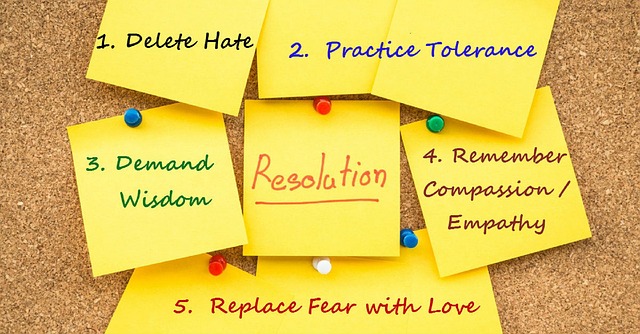To welcome the New Year, we also like to welcome a fresh start – which often includes a “new” version of ourselves.
This is where the annual tradition of declaring a New Year’s resolution stems from; a practice that has been adopted by demographics across the globe in which a person makes a promise to do a self-improving act, such as losing weight or to be more giving, beginning on New Year’s Day.
“I believe New Year’s resolutions are an opportunity to think about what you do and how you can improve yourself,” Connie MacDonald the Council President stated, furthering that his resolution is always to be a better person than the year prior. 
According to the History website, the ancient Babylonians are not only the first ancient civilization known to celebrate New Years, which occurred in March for them because they didn’t follow the Roman Calendar we follow today, but they are also said to have been the first people to make New Year’s resolutions, some 4,000 years ago.
It’s hard to predict how often the ancient Babylonians stuck to their resolutions, but today we know that less than 10% of those who make a resolution actually succeed in fulfilling it beyond the first couple months.
, Director of the International Gaming Research Unit and Professor of Behavioral Addiction at Nottingham Trent University, studied the psychology behind New Year’s resolutions and why such a small handful of people actually stick to them.
“Resolutions usually come in the form of lifestyle changes and changing behavior that has become routine and habitual (even if they are not problematic) can be hard to do… The main reason that people don’t stick to their resolutions is that they set too many or they’re unrealistic to achieve,” Griffiths stated in his article.
T o create an achievable resolution, Griffiths says you have to change your way of thinking, and the best way to do that is to have realistic expectations – including the realization that bad habits can take years to become ingrained, so giving into occasional cravings should not lead to guilt and failure, but instead should be accepted as part of the learning process.
o create an achievable resolution, Griffiths says you have to change your way of thinking, and the best way to do that is to have realistic expectations – including the realization that bad habits can take years to become ingrained, so giving into occasional cravings should not lead to guilt and failure, but instead should be accepted as part of the learning process.
Those who break up their large-goals into smaller, more achievable goals over a longer period of time, are more likely to experience fulfillment. Trying to achieve a challenging goal too quickly can have the opposite effect to the desired result, something that Griffiths refers to False Hope Syndrome, characterized by a person’s unrealistic expectations about the likely speed, amount, ease and consequences of changing their behavior.
He also says that telling someone your resolution or working toward the same resolution with someone else can increase your chances of fulfilling the New Year objective.
Often, humans perform tasks better under pressure and with the positive support of others, which is why telling people about your resolution or striving toward the same goal with someone else can encourage you to actualize the desired result. According to this statistical source, people who explicitly make resolutions are 10 times more likely to attain their goals than people who don’t explicitly make resolutions.
Griffiths also reminds us that aspirations to change our behavior does not have to be restricted to the start of the New Year – it can be anytime.
Another British psychologist and hypnotist, Derren Brown, who performed several placebo studies, said that no matter what, if a person is not passionate about their desired change, they won’t make that change.
EllwoodCity.org wishes everyone a Happy New Year, and if you’re someone who aspires to complete a New Year’s resolution, remember to set a goal you’re passionate and realistic about!
If you can’t decide what to declare as your resolution, you can check out LifeHack’s 50 New Years Resolutions and How to Achieve Them article.


Be the first to comment on "A Psychological Look at New Year’s Resolutions"